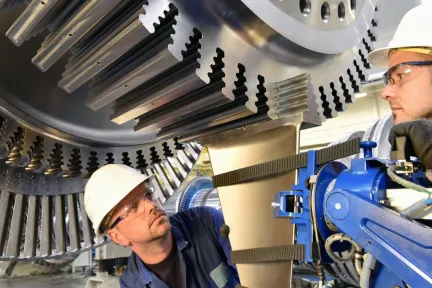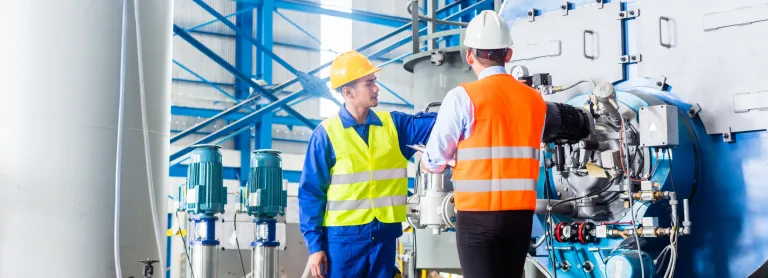Manufacturing & Operations
Achieve Operational Excellence
Connect the Virtual and Real Worlds of Manufacturing and Operations
DELMIA Manufacturing & Operations solutions transform global operations to achieve and sustain operational excellence. A shared digital landscape connects all stakeholders to improve visibility into, control over, and synchronization across manufacturing operations and supply chain processes on a global scale. It also provides real-time manufacturing intelligence to enable automated production and quality control supporting global continuous improvement and to improve sustainability by enabling identification of areas of waste. Manufacturers are able to accomplish this through the connection of the real world with the virtual world that is enabled by this shared digital landscape.
DELMIA Manufacturing & Operations solutions provide an advantage in gaining optimized results with manufacturing execution systems (MES) to track and document the transformation of raw materials to finished goods to sustain operational excellence. These MES capabilities are further enhanced by our augmented reality capabilities that leverage technologies like interactive 3D, computer vision, AI and deep learning to guide human operators in complex assembly tasks and automate quality inspections based on the product virtual twin.
Gain Insight into New Products, Facilities, and Production Process Plans
Additionally, DELMIA provides a broader solution that is based on a model-based, data-driven digital experience. Turning to a broader type of solution enables manufacturing transformation, encompassing the plant floor and the warehouse, quality, and material flows throughout the production process and product supply network. This is defined as Manufacturing Operations Management (MOM) software and it enables you to obtain the control and insight needed to achieve and sustain manufacturing excellence. The result is improved agility and expanded continuous improvement across the enterprise and extended value network.
DELMIA Manufacturing & Operations Key Benefits
Optimize Manufacturing Operations
Achieve and sustain operational excellence
Eliminate Silos of Operation
Enable cross-functional manufacturing processes that include production, quality, materials and maintenance
Optimize Assets
Optimize manufacturing assets through real-time monitoring of OEE and integrated maintenance planning and execution
Maintain Visibility
Make better and more informed decisions based on real-time data.
Seamless Collaboration
Connecting critical stakeholders with contextual workflows
Visibility of Shop Floor Performance with Bottom-line Results
A manufacturing operation is a network of interdependent processes that must all work in unison to meet customer demands efficiently and profitably. Are labor, material, equipment, and capacity available to meet due dates? Are products being produced at a loss or profit? Are your production lines running at optimal efficiency? Any breakdown in the synchronization can quickly cascade and impact profits, performance, and repeat business. Addressing these challenges with a manufacturing ERP software can provide solutions.
DELMIAWorks Manufacturing ERP gives small and midsize manufacturing companies an end-to-end ERP solution with a shop floor first focus for greater visibility of shop floor performance on bottom-line results.
Achieve and Sustain Manufacturing Excellence with an Enterprise Approach
Obtain visibility into and control over manufacturing operations everywhere in the enterprise.
Drives Fast Decisions on MRO Activities
Improve Planning Efficiency for Manufacturing Companies
DELMIA Manufacturing & Operations software products are packaged as Roles to get you up to speed faster and work more efficiently with all needed applications available at your fingertips. Select a package that corresponds to your role in an organization.
Fawer Y-Tec Automotive has 5 factories and 1 research center in 3 cities in China, with over 20 years’ history of developing, manufacturing automotive chassis components. Along with our business growth and increasing customers, we needed a software system that can better support our work.
Start Your Journey
The world of manufacturing & operations is changing. Discover how to stay a step ahead with DELMIA.
FAQ about Manufacturing Operations Management Software
Also Discover
Learn What DELMIA Can Do for You
Speak with a DELMIA expert to learn how our solutions enable seamless collaboration and sustainable innovation at organizations of every size.
Get Started
Courses and classes are available for students, academia, professionals and companies. Find the right DELMIA training for you.
Get Help
Find information on software & hardware certification, software downloads, user documentation, support contact and services offering









